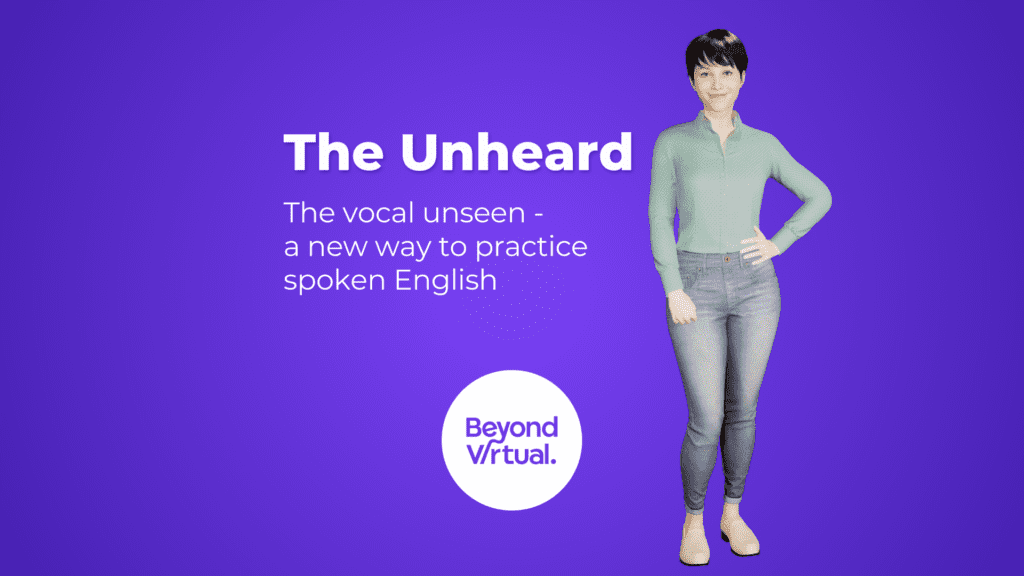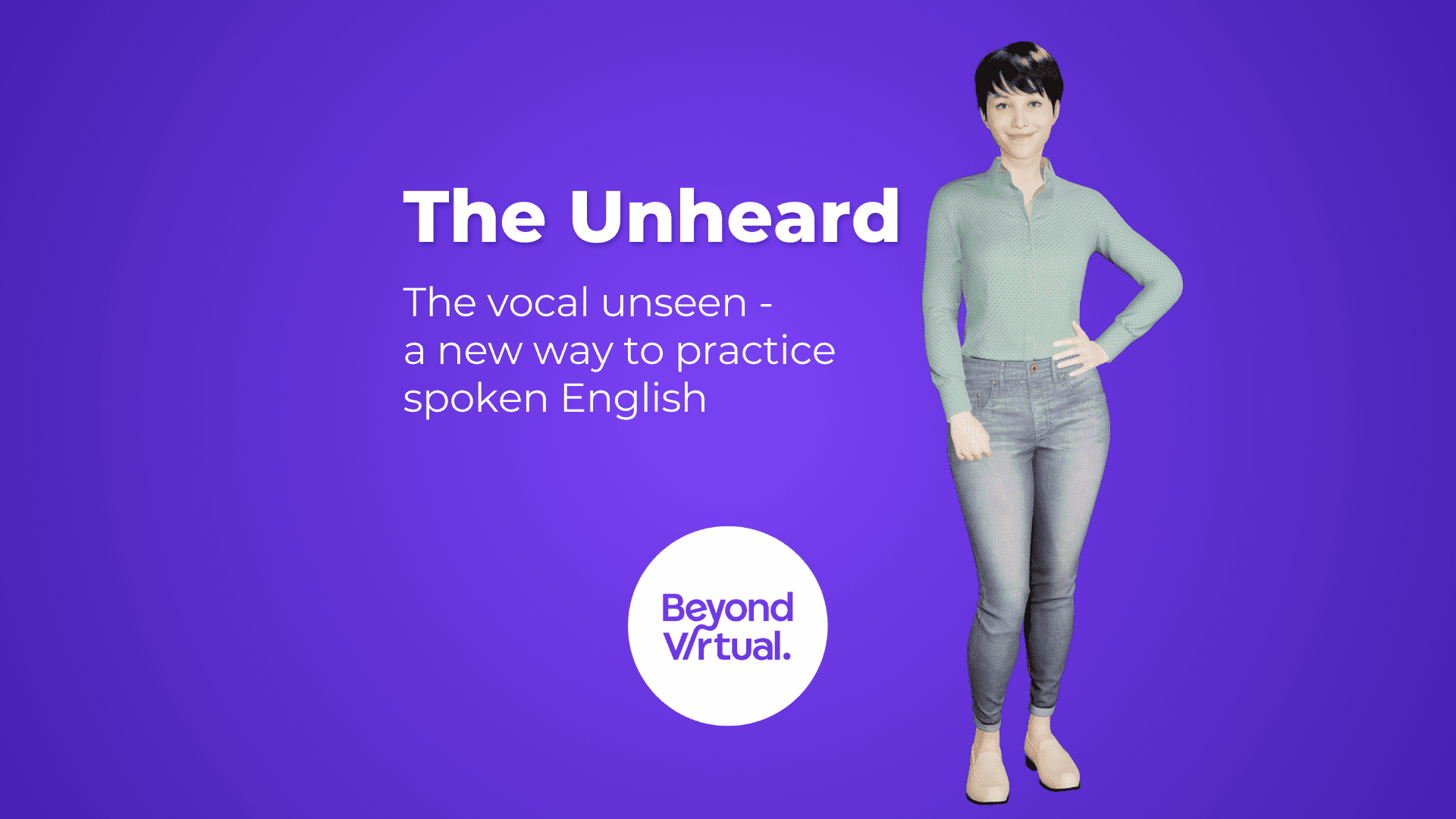Language is the foundation of human communication and interaction. Traditional language learning methods have primarily focused on the written and spoken forms of language, emphasizing reading and writing skills. Now a new exercise by Beyond Virtual – called “UnHeard”, the vocal version of the famous “Unseen” exercises – aims to break the mould.
The importance of the “unheard” aspect of language learning, comprising listening and speaking, should not be underestimated. In this essay, we’ll explore the significance of listening and speaking as fundamental components of effective language acquisition, highlighting their role in promoting comprehension, fluency, cultural understanding, and effective communication.
Enhancing Comprehension and Communication Skills
Listening is one of the primary ways we absorb language during early childhood. Before we learn to read or write, we listen to our parents and caregivers to comprehend the world around us. Similarly, in language learning, actively engaging in listening exercises exposes learners to native speakers’ natural rhythms, intonations, and expressions. This allows learners to grasp the subtleties and nuances that written texts may not always convey.
Through effective listening, learners also develop better communication skills. They learn to process verbal information in real-time, enhancing their ability to comprehend and respond promptly during conversations. This is particularly crucial in language immersion environments, where learners are required to adapt to a new language rapidly. The UnHeard enables learners to adapt by listening to paragraphs, articles, or short stories, for example; Then, they can showcase the knowledge they gained.
Interested in building a conversational exercise with Beyond Virtual? Let’s talk! Contact us here.
Promoting Fluency and Pronunciation
Speaking is an essential skill that goes hand in hand with listening. Engaging in regular speaking practice is vital for language learners to achieve fluency. Through speaking exercises, learners build confidence in articulating their thoughts and ideas in the target language, leading to improved verbal fluency. Furthermore, focusing on pronunciation during speaking practice helps learners refine their accents and intonation. This allows them to be better understood by native speakers and minimizes misunderstandings in communication. In addition, practicing pronunciation early in the learning journey prevents the development of bad habits that might be difficult to correct later on.
Moving Somebody’s Cheese
Language and culture are intricately interconnected. By embracing the “unheard” aspects of language learning, learners gain access to authentic cultural expressions, customs, and traditions. Listening to native speakers conversing about their daily lives, telling stories, or sharing experiences provides valuable insights into the cultural context of the language.
This cultural immersion significantly enhances learners’ appreciation and understanding of the language’s nuances and idiomatic expressions. In our case, for example, the student hears about a unique cheese. Along the way, he not only learns new words and phrases but acknowledges cultural culinary traditions as well.
Effective communication in any language requires cultural sensitivity. By actively listening to and engaging in conversations with native speakers, learners become more aware of cultural norms, gestures, and non-verbal cues. This cultural competence fosters respect and empathy, creating a more inclusive and harmonious environment for intercultural communication.
Building Confidence and Reducing Anxiety
Language learning can be challenging, and learners often experience anxiety and fear of making mistakes. Engaging in “unheard” activities such as speaking practice in a safe and supportive environment can boost learners’ confidence. As learners become more comfortable expressing themselves verbally, they are more likely to overcome their fear of making errors and embrace the learning process enthusiastically.
Additionally, listening to authentic materials, such as podcasts, interviews, or songs, can alleviate anxiety by providing exposure to natural language use. This exposure helps learners become familiar with the rhythm and pace of conversations, making interactions with native speakers less daunting.
Hearing the Unheard
In conclusion, the “unheard” components of language learning, namely listening and speaking, are indispensable for mastering a new language effectively. Emphasizing these aspects alongside traditional reading and writing activities enables learners to comprehend language in its authentic form, communicate fluently, appreciate cultural nuances, and develop a strong sense of confidence.
Educators, learners, and language enthusiasts should recognize the vitality of listening and speaking in the language acquisition process. By incorporating a variety of listening materials and engaging in the regular speaking practice, learners can unlock their potential to become competent, empathetic, and culturally sensitive communicators in the target language. Embracing the “unheard” opens doors to meaningful cross-cultural connections, enriching experiences, and a deeper understanding of the world.











